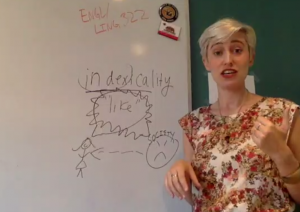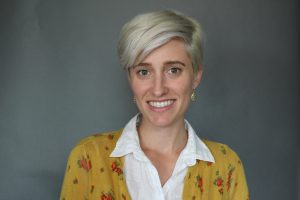I am a sociolinguist and linguistic anthropologist who studies how media and pop culture shape the way people use language. In particular, I’m interested in how the globalization of pop culture brings new linguistic resources to people and communities around the world. My dissertation research focused on how Argentine fans of English-language pop culture use English and Spanish to participate in global fan communities, in both digital/online and offline contexts. My advisors were Qing Zhang and Heidi Harley, and I also worked with Ana María Carvalho and Jennifer Roth-Gordon.

My BA in Language, Culture, and Society is from the CUNY Baccalaureate Program for Unique and Interdisciplinary Studies, where I worked with Maryam Bakht, Ignasi Clemente, and Trudy Smoke. I completed my MA in 2014 at the University of Arizona.
Outside of academia, I love reading fiction, watching murder mysteries or costume dramas on Netflix, and hanging out with my pet ball python, Teddy. I grew up in Northern California, but when I moved to New York, my merged vowels caused some problems.



 Twitter:
Twitter:  orcid.org/0000-0002-7283-7892
orcid.org/0000-0002-7283-7892